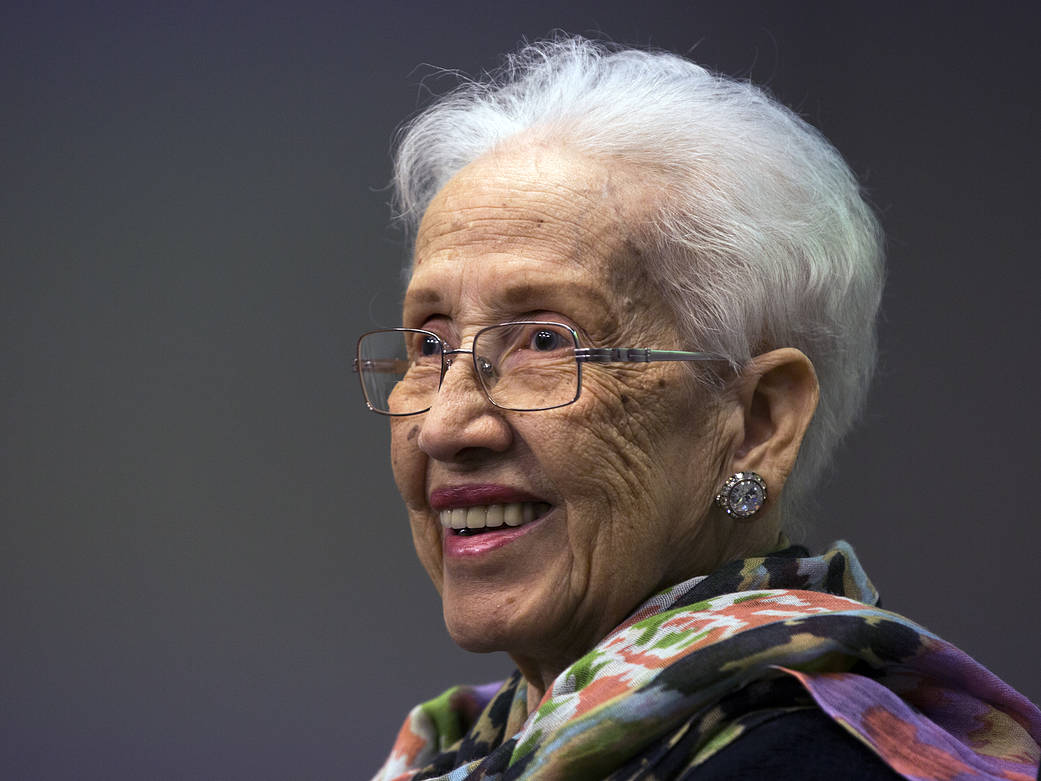NASA mathematician, pioneer in racial and gender equality, and contributor to one of our nation’s first triumphs in human spaceflight, Katherine Johnson is remembered as one of America’s most inspirational figures. In 1939, two years after graduating from the historically Black university West Virginia State University, Johnson was one of three Black students handpicked to integrate West Virginia University’s graduate school. This was just the beginning of a career full of firsts for her.
Johnson went on to work at what is today known as NASA’s Langley Research Center in Hampton, VA, and was a key mathematician whose calculations of orbital mechanics were critical to the success of the first and subsequent U.S. crew spaceflights. After 33 years at Langley, she retired but was nowhere near leaving the spotlight. In 2015, President Barack Obama awarded her the Presidential Medal of Freedom, and in 2019, a bipartisan team of Senators awarded her the Congressional Gold Medal of Honor–two of America’s highest civilian honors. In 2016 she was portrayed by actor Taraji P. Henson as the lead character in the critically acclaimed film Hidden Figures.
After her death in 2020 at the age of 101, Johnson’s legacy was described by former NASA Administrator, Maj. Gen. Charles Bolden: “Katherine’s legacy is a big part of the reason that my fellow astronauts and I were able to get to space… it’s a big part of the reason that today there is space for women and African Americans in the leadership of our nation, including the White House.”

